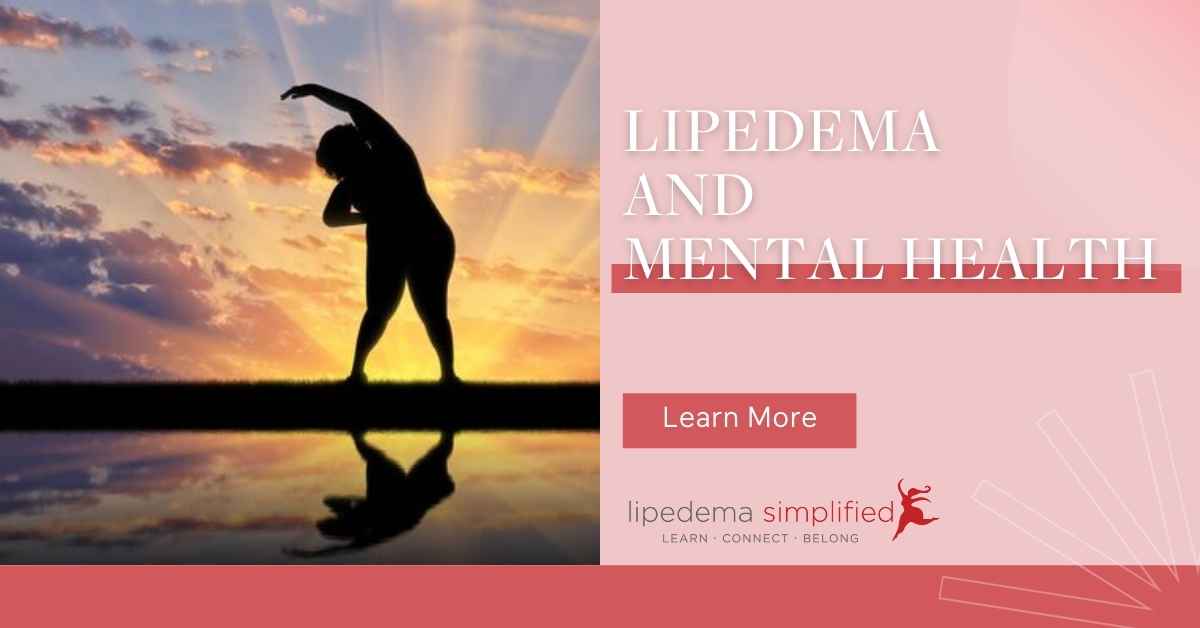
Today, I’m going to focus on an incredibly important issue in the lipedema community – mental health. I will focus on a study by Joanna Dudek and colleagues from Poland published in the journal Psychology, Health & Medicine in 2018. The title of the paper is “Depression and appearance-related distress in functioning with lipedema”.
Methods
The study was carried out online with 328 women with lipedema. Most participants were from the US, but there was also participation from women in the UK, Netherlands, Canada, and Germany. The average age of participants was 49, and 84% had received a diagnosis of lipedema from a health professional.
The participants answered five questionnaires: The World Health Organization Quality of Life Scale, the Lipedema Symptom Severity Scale, the Lower Extremity Functional Scale (to look at mobility issues), the Derriford Appearance Scale (to measure appearance-related distress), and the Patient Health Questionnaire (to assess the severity of depression).
Results
As expected, more severe lipedema symptoms, depression, and appearance-related distress were associated with lower quality of life. Additionally, higher mobility was associated with a perception of higher quality of life. In further analysis, it was found that both appearance-related distress and depression are significant factors in the quality of life.
Takeaways
Because lipedema is a chronic condition that is difficult to control, has co-existing pain, and is non-responsive to low-calorie dieting and exercise, the authors suggest these aspects may lead to a feeling of helplessness and depression. Further, depression and appearance-related distress should be taken into account when planning treatment for women with lipedema. Mental health can dramatically affect the quality of life for women with lipedema, and the authors also urge weight bias to be addressed at the societal level.
This study demonstrates the importance of a treatment approach that is multidisciplinary and deals with the whole person, not just the physical side of lipedema. This is important research as it helps us understand how lipedema can affect all areas of a woman’s life and how we must do more to prevent weight bias with healthcare providers and in society in general.
~ Leslyn Keith, OTD, CLT-LANA
Board President, Director of Research | The Lipedema Project
